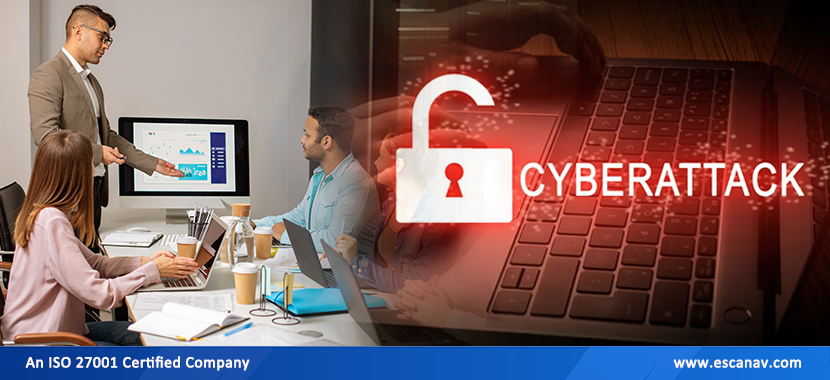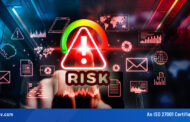Since the pandemic, most businesses have become data-driven and reliant on technology. There has also been an increase in cyber threats, especially for small and medium-sized companies (SMBs). Data regulations have also become stricter, with fines increasing and regulators targeting firms regardless of size.
SMEs are more vulnerable to cyberattacks, resulting in productivity loss, financial difficulties, and reputational harm. Because attackers do not differentiate between large and small enterprises, we must ensure that our critical data is protected and business continuity is always maintained.
Business owners and executives must prioritize cybersecurity on their agendas above daily operations and long-term growth plans. It can be challenging to know where to begin when the cyber landscape is constantly evolving. Getting started with cyber threats can be challenging for SMBs. We have written this guide to help you get started.
Why do cyber hackers go after small and medium-sized businesses?
SMBs generally have less strict technology defences and require greater enterprise-level security, resources, and knowledge to identify and protect themselves against sophisticated threats. Small businesses, which are absorbed with their company operations, must prioritise data privacy and cyber security, particularly from an investment/budget perspective.
SMBs frequently believe that because of their small size, they are too insignificant to be a target, thus they rely on security through obscurity. Because of this, they are a simpler target for hackers seeking for vulnerabilities to exploit.
Almost 43% of cyberattacks target small and medium businesses, according to a recent study. Even so, only 14% of these accounting SMBs are protected against them.
Surprised? Don’t be.
The most common types of cyberattacks targeting SMBs are phishing attacks, data theft and exfiltration, malware and ransomware attacks, APTs, supply chain attacks, cloud-based attacks, trusted insider threats, and zero-day attacks.
Regardless of your small business size, shape, or industry, security vulnerabilities are targeted by attackers.
Because they possess more digital assets and less security than large enterprises, these attacks put their companies at risk.
SMBs may leave their endpoints vulnerable to hackers unless they strengthen their defences. In addition, SMBs can also be used by hackers as a stepping stone to penetrate larger companies particularly when small businesses are part of a larger enterprise’s supply chain.
Cybersecurity plans are essential for mitigating the risks. Even though it’s impossible to predict when an attack will occur, taking the appropriate precautions can prevent hackers from accessing your network or making any damaging changes to it.
How to protect your small business against cybersecurity risks!
The biggest risk factor for many small business owners is not realizing the risks they face!
Even though cybersecurity capabilities and awareness seem to be improving, unfortunately, cyberattacks are increasing in sophistication and threat. Therefore, small businesses also deserve robust protection against complex cyberattacks.
Businesses can strengthen their cyberdefenses in the following ways to mitigate threats, reduce damage, and boost resiliency and recovery:
Spot the threats: Regular security audits, risk assessments, and penetration tests can help you identify potential vulnerabilities in your network and systems. Identifying your vulnerabilities and prioritizing your security efforts will help you identify areas of vulnerability.
Secure your networks: Protect your networks, including Wi-Fi, routers, and servers, with firewalls and other security solutions. When remote workers and contractors access your network, make sure they follow your security protocols.
Deploy robust: Protect your computer against malware, viruses, and spyware by installing anti-malware software. In addition to protecting you from known and unknown threats, these tools alert you when something suspicious occurs.
Keep the software updated: Keep all software up-to-date regularly with the latest security patches and bug fixes, including operating systems, browsers, and plugins. Vulnerabilities in outdated software are prime targets for cybercriminals.
Enable multi-factor authentication Multi-factor authentication (MFA) adds an extra layer of security by requiring a user to provide a password as well as a unique code.
Secure and back up your data: Secure your data by encrypting private information, limiting access to authorized workers, and frequently making backups. Backups can speed up the restoration of your data in the event of a cyberattack and lessen its effects.
Ensure a strong password policy: Encouraging the usage of strong, lengthy, complex passwords that are changed on a regular basis. To securely keep track of passwords, use a password manager.
Don’t overlook mobile devices: Plans for cybersecurity frequently exclude mobile devices. Ensure that anti-virus software, encryption, and strong passwords are all used to protect employee devices. Implement mobile device management (MDM) technologies to remotely manage and protect these devices.
Select the best cybersecurity partner: Choose a source of end-to-end enterprise cybersecurity solutions that can assist with a variety of security requirements. Going with eScan solutions might be difficult for a small organization. Make sure your solution supplier has a robust support team that can assist you when needed. A remote control can provide peace of mind. eScan is a major enterprise cybersecurity solutions provider providing end-to-end solutions for enterprises of all sizes and 34 service locations across India.
In Conclusion
Companies are increasingly expanding their businesses online, making cybersecurity more important. It is imperative that SMBs safeguard their assets and data to minimize the risk of a breach occurring.
eScan provides security for your business! A cyber-resilient business will be able to operate even if persistent threats or sophisticated attacks are made against it. To ensure that disruptions can be safely adapted to, customer trust can be increased, and shareholder wealth can be increased, this needs to be done.
Today, businesses are facing unprecedented security challenges thanks to sophisticated attacks. Identifying cyber threats plays an important role in implementing measures that can help organizations outmanoeuvre uncertainty, maintain resilience during crises, and emerge stronger from them.
So, are you revamping your defence strategies?
About eScan
Enterprise security solutions eScan, a top provider of enterprise cybersecurity solutions, are self-contained and extremely sophisticated. Achieving the ideal balance between defence and corporate growth is made possible by eScan’s contemporary methodology.
Offering affordable security and protection against ransomware, malware, and the latest cyber threats, the product portfolio is designed specifically for small businesses.
By integrating all monitoring and remediation functions into a single console, organizations are able to anticipate threats, protect data as it moves, and respond rapidly and accurately without hindering business innovation.
Consider a situation where you need help choosing a solution. Our Enterprise Endpoint Security solution will help you discover new capabilities and features while ensuring your experience is optimized based on your usage of the centralized platform.
With the solution, businesses can simplify their security stack and proactively safeguard their IT assets without sacrificing enterprise capabilities. Globally, millions of customers use the technology to scale businesses and secure networks.







